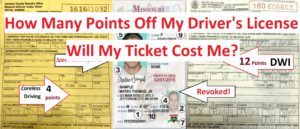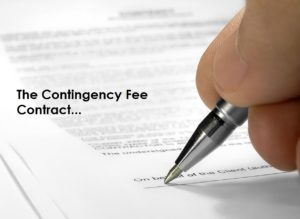
9 Surprising Facts about Speeding Tickets
 #1 The First Ever Speeding Ticket was Slow
#1 The First Ever Speeding Ticket was Slow
Speeding tickets have been around since May 20, 1899. That speeding ticket was in the Supreme Court of New York, in downtown Manhattan.
The driver was speeding 12 miles per hour in 8 miles per hour zone. He was arrested. He was imprisoned. He was released a few days later.
#2 The World Speeding Ticket Record is Recent, and Huge!
 What appears to be a new world record was set this year by a 25 year old British tourist in the country of Dubai. He racked up 33 speeding violations in just 4 hours on July 31, 2018. He was driving a yellow Lamborghini Huracan. He is facing over $45,000.00 in speeding ticket fines. He speed ranged from 78 mph to 142 mph, depending upon the ticket.
What appears to be a new world record was set this year by a 25 year old British tourist in the country of Dubai. He racked up 33 speeding violations in just 4 hours on July 31, 2018. He was driving a yellow Lamborghini Huracan. He is facing over $45,000.00 in speeding ticket fines. He speed ranged from 78 mph to 142 mph, depending upon the ticket.
Dubai has several interesting aspects that allow for this record.
- First, they typically do not have individual police officers pulling people over for citations. Rather, they have cameras that document the speed, driver, and vehicle, and then automatically issue the ticket.
- Second, Dubai is a relatively small area with large resources. Therefore, there are many speeding cameras. There is a small amount of space to get caught. It is possible to get caught on many occasions in a short period of time.
- Third, Dubai as a country has what is called in rem jurisdiction over speeding tickets. This means the property (the Lamborghini race car) is primarily found to be at fault rather than the driver himself. This explains why the Lamborghini remains parked in front of the tourist’s hotel. Any one claiming it also must claim the tickets.
This world record may stand. This is an average of getting a speeding ticket every 7 minutes and 27 seconds, without a break, for 4 consecutive hours. This is a cost of $187.50 per minute for speeding tickets for 4 consecutive hours. This record may stand.
#3 A Huge Number of Speeding Tickets get Written
42 million speeding tickets are issued in the United States on a yearly basis. That is 36 percent of drivers, assuming one speeding ticket per driver. In reality, 20.6 percent of drivers average a speeding ticket per year. Each day, over 112,328 speeding tickets are cited from municipal police officers, sheriff’s deputies, and highway patrol troopers. There are 196 million licensed drivers in the United States.
#4 Speeding Actually Is Dangerous
Speeding has a direct impact on auto accidents. Speeding is a cause in nearly 30 percent of all wrongful death auto accident collisions. Speeding contributes to cause over 9,944 deaths per year.
#5 Speeding is Big Money Lost; Big Money Gained
The National Highway Transportation Safety Administration along with its Traffic Security Administration estimates cost at $41,000,000,000.00 (41 billion dollars) per year in auto accident damages in the United States contributed by speeding. Governments, be they city, county, or state collect $6,232,000,000.00 (6.2 billion dollars) in revenue from speeding tickets each year.
#6 Police officers apparently Do Give tickets to raise money for their town?
 The process is called “fundraising.” It is a term for when local city police officers pull over more people and give out more tickets (rather than warnings) to raise money for their local government. This is distinguished from giving speeding tickets for safety or for law enforcement.
The process is called “fundraising.” It is a term for when local city police officers pull over more people and give out more tickets (rather than warnings) to raise money for their local government. This is distinguished from giving speeding tickets for safety or for law enforcement.
A study by George Mason University looked to over 60,000 tickets issued since the year 2001. Dr. Michael Makowsky and Professor Thomas Stratmann looked to this in their similar article “Political Economy at Any Speed: What Determines Traffic Citations” It was found that there is a statistical link between city finances and the likelihood that any city police department will issue a ticket. Money matters. The study focused on when police officers issued warnings versus issued speeding tickets. It was found that when city finances are low, traffic ticket issuing goes up.
#7 Speeding Ticket Costs Vary Wildly
The average cost for a speeding ticket, assuming it is a guilty plea and a conviction, is $152.00 per speeding ticket. Maximum speeding ticket fine potential varies considerably by state.
The most expensive states are as follows:
- Virginia – $1,350.00
- North Carolina – $1,000.00
- Georgia – $1,000.00
- Illinois – $1,000.00
- New York – $1,000.00
- Nevada – $1,000.00
The least expensive state jurisdictions for a speeding ticket are as follows:
- Tennessee – $50.00
- Kentucky – $100.00
- Idaho – $100.00
- Colorado – $100.00
#8 Some Police Mistakes Do Not Matter
 What kinds of mistakes can a traffic ticket police officer make and yet still have a good ticket against you? The primary, “non-fatal” speeding ticket mistakes are as follows:
What kinds of mistakes can a traffic ticket police officer make and yet still have a good ticket against you? The primary, “non-fatal” speeding ticket mistakes are as follows:
- A misspelled name
- Inaccurate address
- Inaccurate driver’s license number
- Inaccurate license’s plate
- Wrong vehicle make or wrong vehicle model
#9 Some Police Mistakes Can Get a Ticket Dismissed
Whether a traffic ticket is dismissed at trial is up to the particular judge in the jurisdiction in which you received your ticket. However, some types of mistakes made by traffic ticket police officers are most likely to result in a dismissal of your traffic ticket. The most likely mistakes causing a dismissal are as follows:
- Police officer fails to write down the speed
- Police officer fails to sign the traffic ticket
- Police officer fails to write down the name of the person who got the ticket
- Inaccurate fine amount written on the speeding ticket
What Should You Do when you get a Speeding Ticket?
From a financial stand point it is always better to hire a traffic ticket lawyer to amend your speeding tickets to non-moving violations. These will keep these off your criminal record. You can avoid a notation on your driving record. You can avoid the assessment of points against your driver’s license. You can save yourself money off of insurance premium rises. With few exceptions, it is always better to have a traffic ticket lawyer amend a speeding ticket.
 Author: Matt Hamilton
Author: Matt Hamilton
- Traffic Ticket Attorney
- Juris Doctor

 FIVE REASONS NOT TO HAVE AN ATTORNEY FOR AN AUTO ACCIDENT
FIVE REASONS NOT TO HAVE AN ATTORNEY FOR AN AUTO ACCIDENT Most auto accidents do not involve personal injury, thankfully. Also, most insurance companies have separate divisions called “property casualty” divisions. Property Casualty Divisions tend to be more reasonable in giving money to settle property damage claims. Even in injury cases, one will typically have two different insurance adjusters. One adjuster will handle the property side. Another adjuster will handle the injury side.
Most auto accidents do not involve personal injury, thankfully. Also, most insurance companies have separate divisions called “property casualty” divisions. Property Casualty Divisions tend to be more reasonable in giving money to settle property damage claims. Even in injury cases, one will typically have two different insurance adjusters. One adjuster will handle the property side. Another adjuster will handle the injury side. Remember that Kelly Blue Book valuations (
Remember that Kelly Blue Book valuations ( Exactly what is the injury? Sore backs, strained necks, and headaches are the most common injuries reported after collisions. These typically resolve after eight weeks of activity. Physical therapy is common. Anti-inflammatory pain medication is common. These common injuries tend not to produce high case values because juries do not award large judgments at trial.
Exactly what is the injury? Sore backs, strained necks, and headaches are the most common injuries reported after collisions. These typically resolve after eight weeks of activity. Physical therapy is common. Anti-inflammatory pain medication is common. These common injuries tend not to produce high case values because juries do not award large judgments at trial. People in different parts of the country think differently. So too, the laws in different parts of the country reflect those peoples’ attitudes and are different. Some places are conservative. Some places are liberal. Injury accident values vary considerably based upon location. If one has an accident in a highly conservative area where injury values are low, they may not want to hire a lawyer but keep what little money is offered for themselves. Other areas tend to provide more reasonable results. Full value will then require the expertise of an attorney and justifies the expense.
People in different parts of the country think differently. So too, the laws in different parts of the country reflect those peoples’ attitudes and are different. Some places are conservative. Some places are liberal. Injury accident values vary considerably based upon location. If one has an accident in a highly conservative area where injury values are low, they may not want to hire a lawyer but keep what little money is offered for themselves. Other areas tend to provide more reasonable results. Full value will then require the expertise of an attorney and justifies the expense. We all spend our lives confronting and solving new problems. Anything you are an expert at means that at some point you were a rookie and knew nothing … but learned. Do you enjoy tackling new problems? Do you want to learn a complex new area? Are you willing to take the risk? How busy is your life presently?
We all spend our lives confronting and solving new problems. Anything you are an expert at means that at some point you were a rookie and knew nothing … but learned. Do you enjoy tackling new problems? Do you want to learn a complex new area? Are you willing to take the risk? How busy is your life presently? Matt Hamilton of Hamilton & Associates, Lawyers
Matt Hamilton of Hamilton & Associates, Lawyers What You Need to Know to Fix a Cass County Speeding Ticket in Harrisonville
What You Need to Know to Fix a Cass County Speeding Ticket in Harrisonville
 Matt Hamilton
Matt Hamilton What Does It Cost to Fix a Lake Winnebago Municipal Court Speeding Ticket?
What Does It Cost to Fix a Lake Winnebago Municipal Court Speeding Ticket? Lake Winnebago Police Department issues many speeding tickets, mainly on Missouri 291 Highway south of Lee’s Summit. These speeding tickets are processed through
Lake Winnebago Police Department issues many speeding tickets, mainly on Missouri 291 Highway south of Lee’s Summit. These speeding tickets are processed through  The type of police officer that gave you the Lake Winnebago ticket determines which of the four different courts is yours:
The type of police officer that gave you the Lake Winnebago ticket determines which of the four different courts is yours: The vast majority of speeding tickets within the city limits of
The vast majority of speeding tickets within the city limits of 
 The closest traffic lawyers to Lake Winnebago Municipal Court are Hamilton and Associates of Pleasant Hill, Missouri. Matt Hamilton along with his entire family lives in Lake Winnebago. The Hamiltons have been regularly practicing in Lake Winnebago Municipal Court since the city was founded.
The closest traffic lawyers to Lake Winnebago Municipal Court are Hamilton and Associates of Pleasant Hill, Missouri. Matt Hamilton along with his entire family lives in Lake Winnebago. The Hamiltons have been regularly practicing in Lake Winnebago Municipal Court since the city was founded.
 Speeding tickets for faster speeds that appear on your driving record will raise your insurance premium costs more than convictions for lower speeds. Speeding ticket convictions appear on a driving record typically in five mile per hour increments.
Speeding tickets for faster speeds that appear on your driving record will raise your insurance premium costs more than convictions for lower speeds. Speeding ticket convictions appear on a driving record typically in five mile per hour increments. The amount of money you pay a car insurance company to insure your vehicle is calculated by a number of factors. To start; the insurance company determines what they can know about you; that is, what they can find out about you.
The amount of money you pay a car insurance company to insure your vehicle is calculated by a number of factors. To start; the insurance company determines what they can know about you; that is, what they can find out about you. Each driver insured on the road is categorized by insurance companies. These companies seek to maximize their profit (the insurance premiums you pay), and minimize their costs (advertising for customers and paying accident claims).
Each driver insured on the road is categorized by insurance companies. These companies seek to maximize their profit (the insurance premiums you pay), and minimize their costs (advertising for customers and paying accident claims). Another recent study considered quotes from the five states with the highest population. A comparison was made between drivers with a clean record versus drivers with one speeding conviction on their record (6-10 mph over).
Another recent study considered quotes from the five states with the highest population. A comparison was made between drivers with a clean record versus drivers with one speeding conviction on their record (6-10 mph over). Most insurance companies raise premium quotes by looking back three years. However, if your insurance costs rise, and you still pay the higher expensive insurance, it is reasonable to expect the insurance company to take your money for as long as it can … so, indefinitely.
Most insurance companies raise premium quotes by looking back three years. However, if your insurance costs rise, and you still pay the higher expensive insurance, it is reasonable to expect the insurance company to take your money for as long as it can … so, indefinitely. The amount you pay for auto insurance (your premium) is based in large part on how risky you appear to the insurer. Insurance companies have a limited number of ways at their disposal to evaluate drivers. The insurer does not know how well you see, how fast your reactions are, your level of wisdom, or your focus. The insurance company does know what type of car you drive, where you live, your claims history, and yes, your driving record.
The amount you pay for auto insurance (your premium) is based in large part on how risky you appear to the insurer. Insurance companies have a limited number of ways at their disposal to evaluate drivers. The insurer does not know how well you see, how fast your reactions are, your level of wisdom, or your focus. The insurance company does know what type of car you drive, where you live, your claims history, and yes, your driving record. Insurance companies use different policies for different types of drivers. Some policies are very “pro-driver” and give great accident coverage. Other types of insurance policies are less generous.
Insurance companies use different policies for different types of drivers. Some policies are very “pro-driver” and give great accident coverage. Other types of insurance policies are less generous.
 Matt Hamilton
Matt Hamilton


 What are the top days to get traffic tickets?
What are the top days to get traffic tickets? The most common times to receive speeding tickets are between 9:00 and 10:00 a.m. and 1:00 and 3:00 p.m.
The most common times to receive speeding tickets are between 9:00 and 10:00 a.m. and 1:00 and 3:00 p.m. Traffic ticket police officers are also more likely to target certain types of individuals. The Bureau of Justice Statistics for Insurance Institute for Highway Safety did a study of two million speeding tickets. The results were as follows:
Traffic ticket police officers are also more likely to target certain types of individuals. The Bureau of Justice Statistics for Insurance Institute for Highway Safety did a study of two million speeding tickets. The results were as follows: A large recent study analyzed whether recent passages of traffic laws of cities affect the rate of traffic ticket citations given. Some cities passed laws increasing fine amounts, or speeding changes. This means your chances of getting a ticket can be based more on whether the city passed a recent law regarding tickets versus factors such as:
A large recent study analyzed whether recent passages of traffic laws of cities affect the rate of traffic ticket citations given. Some cities passed laws increasing fine amounts, or speeding changes. This means your chances of getting a ticket can be based more on whether the city passed a recent law regarding tickets versus factors such as: An out-of-town license plate plus traffic revenue laws matter even more! The most likely increase chance for you getting a speeding ticket is speeding in a city that recently passed a revenue-based traffic ticket law combined with having an out-of-town, or out-of-state license plate. Such a combination increases your chance of getting a speeding ticket versus a warning by 37%. This is compared to other drivers stopped by the same police for the same speed.
An out-of-town license plate plus traffic revenue laws matter even more! The most likely increase chance for you getting a speeding ticket is speeding in a city that recently passed a revenue-based traffic ticket law combined with having an out-of-town, or out-of-state license plate. Such a combination increases your chance of getting a speeding ticket versus a warning by 37%. This is compared to other drivers stopped by the same police for the same speed.

 Sometimes you do not have to directly pay the lawyer at all. Certain types of cases (like vexatious refusal to pay by insurance) carry with them awards of attorney fees. This means at the end of the case, if you win, the other side pays for your attorney’s fees.
Sometimes you do not have to directly pay the lawyer at all. Certain types of cases (like vexatious refusal to pay by insurance) carry with them awards of attorney fees. This means at the end of the case, if you win, the other side pays for your attorney’s fees. Like stairs, contingency fee amounts typically go up in steps.
Like stairs, contingency fee amounts typically go up in steps.